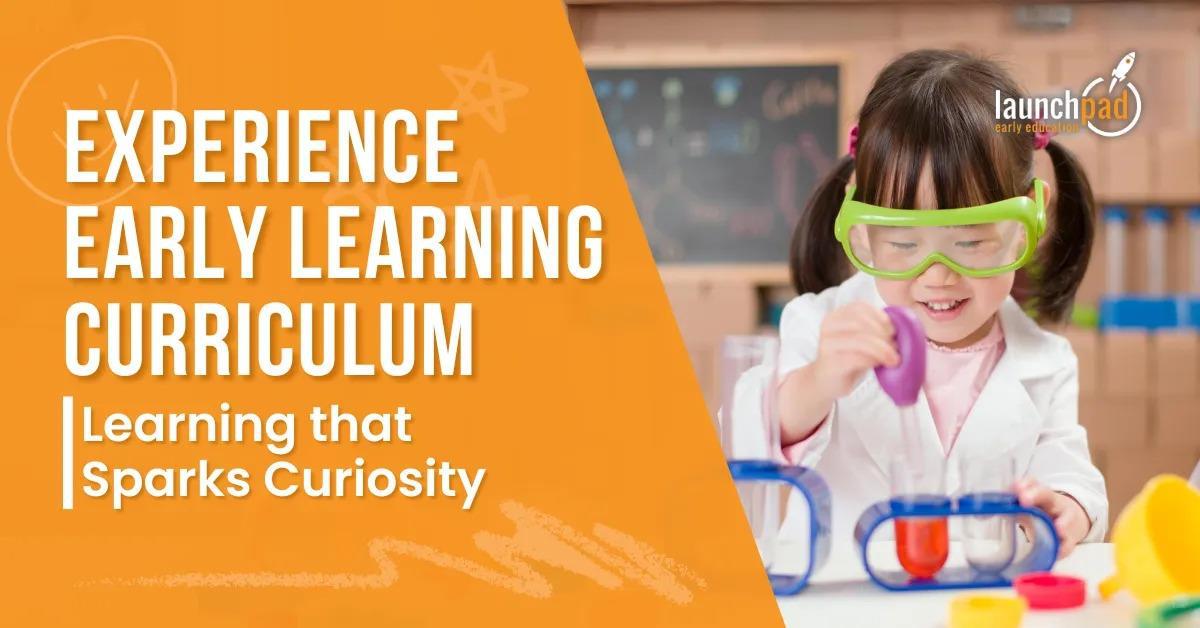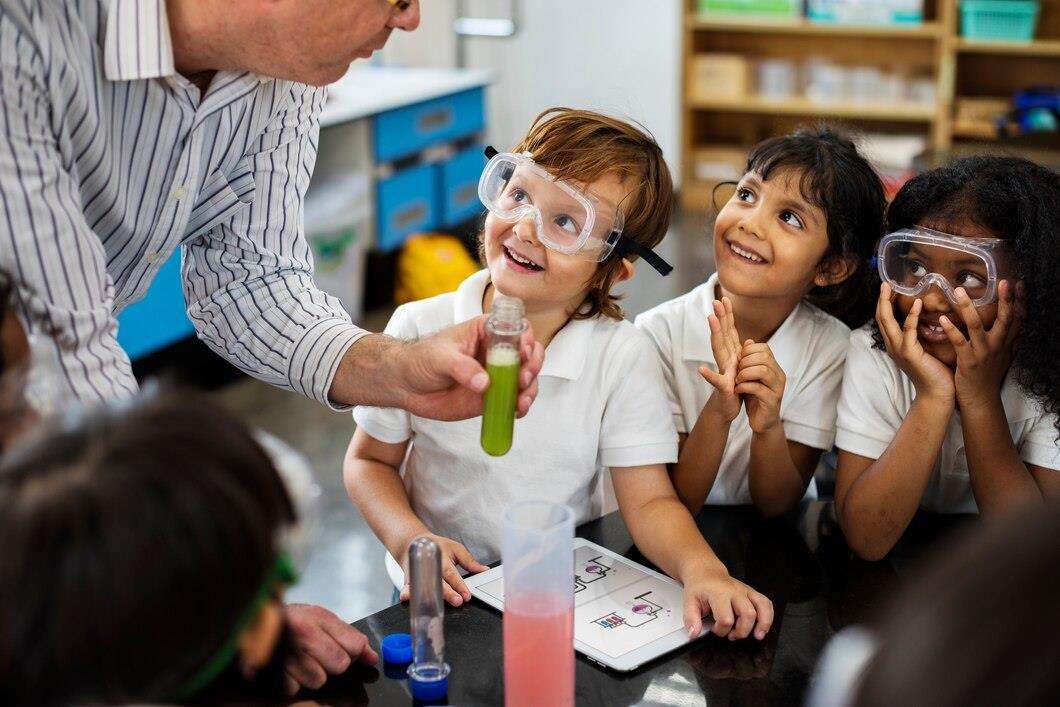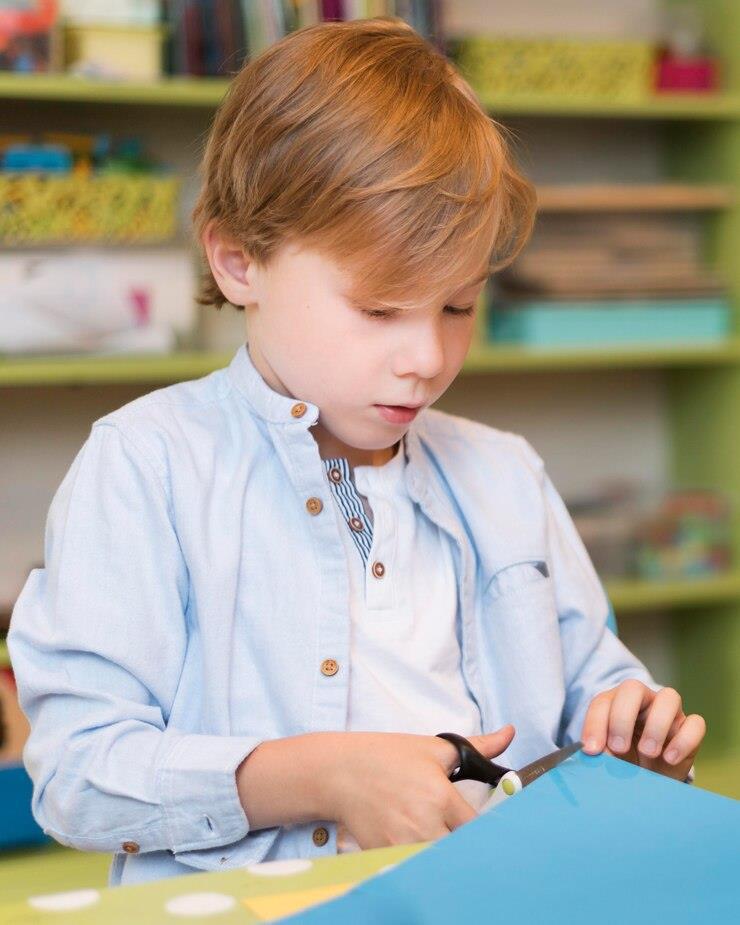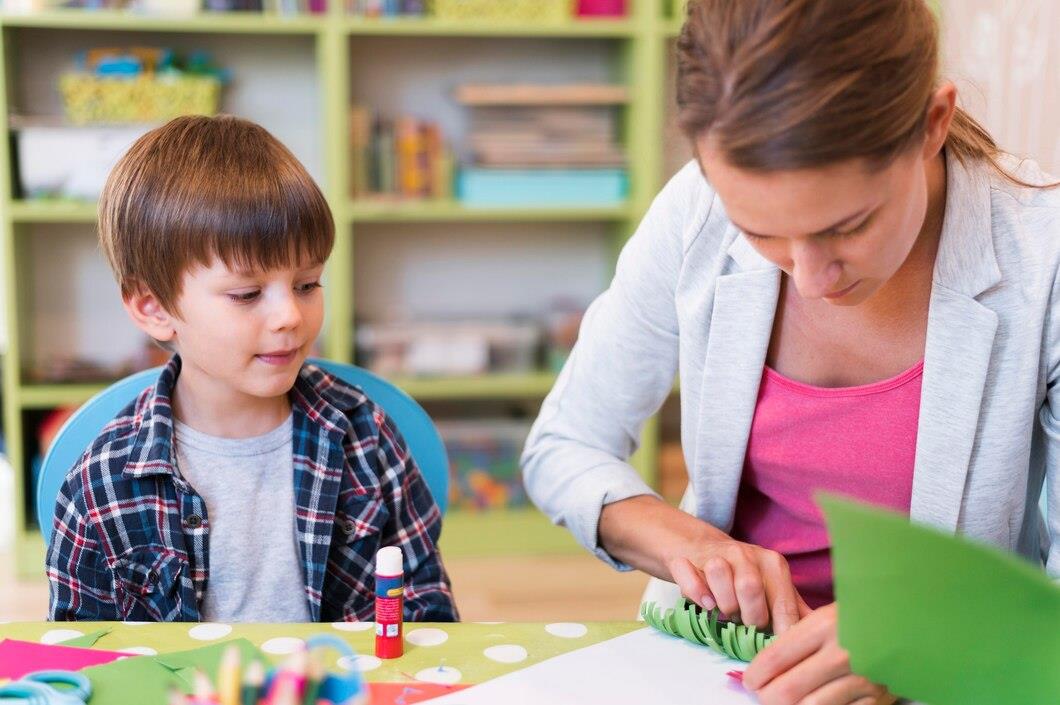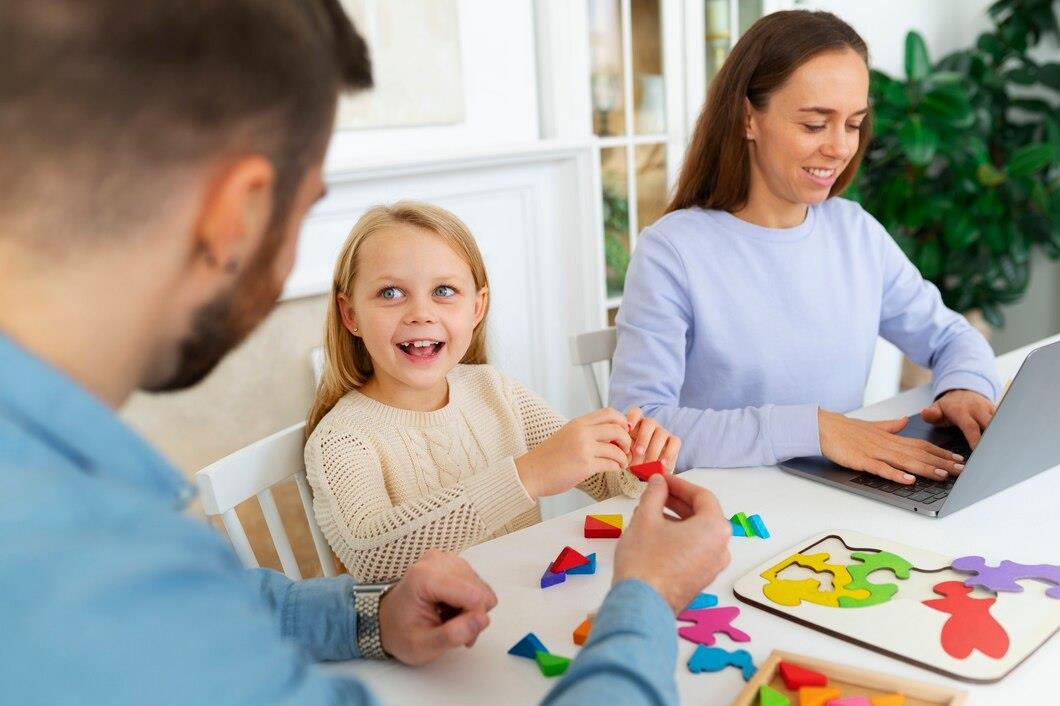When it comes to early childhood education, an experience early learning curriculum is a game-changer. It goes beyond the traditional focus on basic skills like reading, writing, and counting. Instead, it aims to ignite a lifelong love for learning by nurturing children’s natural curiosity and creativity. In this blog post, we’ll deeply dive into what experience early learning is, how it benefits young children, and how it can be implemented in a daycare or preschool setting.
What is Experience Early Learning?
Experience early learning is a philosophy that emphasizes hands-on, interactive, and engaging daily learning activities to help children learn and grow. It’s based on the idea that children are naturally curious and eager to explore the world around them. By providing a rich and stimulating learning environment, early learning helps children develop critical thinking, problem-solving, and social-emotional skills that will serve them well throughout their lives.
So, what does experience early learning look like in practice? Instead of sitting at a desk and memorizing facts, children are encouraged to engage in playful, hands-on learning activities that allow them to discover new things independently. For example, they might go on a nature walk to collect leaves and rocks, build a fort out of cardboard boxes, or create a story through dramatic play. The key is to provide children with various materials and experiences that spark their imagination and encourage them to ask questions and make connections.
Key Principles of Experience Early Learning
Active Engagement:
Children learn best when they are actively engaged in their learning. Teachers take on the role of facilitators rather than lecturers and encourage children to take risks and try new things.
Open-Ended Exploration:
Experience early learning provides children with open-ended materials and experiences that allow them to explore and discover independently. This helps to foster a sense of autonomy and self-confidence.
Playful Learning:
Play is a powerful learning tool that helps children develop a wide range of skills, from problem-solving and creativity to social-emotional skills like communication and collaboration.
Benefits of an Experience Early Learning Curriculum
So why is experience early learning so necessary? Research has shown that the early years of a child’s life are critical for brain development. During this time, children’s brains are growing and forming new connections at an incredible rate. By providing a rich and stimulating learning environment, early learning helps support this growth and development in several ways.
Encourages Curiosity
First and foremost, experience early learning encourages curiosity. By providing a variety of materials and activities, children are naturally drawn to explore and discover new things. They might experiment with mixing colors, building structures out of blocks, or observing the life cycle of a butterfly. This sense of wonder and curiosity is the foundation for a lifelong love of learning.
Develops Critical Thinking Skills
Early learning experience also helps develop critical thinking skills. Through open-ended questions and problem-solving activities, children learn to think creatively and develop their solutions. For example, they might be asked to figure out how to balance a tower of blocks or create a map of their neighborhood. These activities help children develop the ability to analyze information, make predictions, and test their ideas.
Supports Social-Emotional Development
In addition to cognitive development, experience early learning also supports social-emotional development. Children learn essential skills like communication, collaboration, and empathy by working together on projects and engaging in cooperative play. They learn to share ideas, take turns, and respect others’ opinions. These skills are essential for success in school and life.
Supports Individual Learning Styles
Finally, experience early learning supports individual learning styles. Every child is unique, with their strengths, interests, and ways of learning. An experience early learning curriculum allows children to learn at their own pace and in their way. Some children prefer to learn through movement and physical activity, while others are more drawn to artistic expression or storytelling. By providing various experiences and materials, early learning ensures that every child can learn and grow in a way that works best for them.
Implementing Experience Early Learning in Daycare Curriculum
So, how can experience early learning be implemented in a daycare or preschool setting? An effective experience early learning curriculum has several key components.
Play-Based Learning
One of the most critical elements is play-based learning. Children learn best when engaged in playful and meaningful activities that allow them to explore and discover independently. In an early learning daycare curriculum, children might engage in imaginative play, sensory exploration, or physical activity. For example, they might create a pretend grocery store, explore different textures in a sensory bin, or go on a nature scavenger hunt.
Project-Based Learning
Another key component of experience early learning is project-based learning. This involves children working on long-term projects that allow them to explore a topic in depth. For example, children might create a garden, build a birdhouse, or put on a play. These projects help children develop problem-solving skills, creativity, and collaboration as they work together to bring their ideas to life.
Nature-Based Learning
Nature-based learning is also an essential part of an experience early learning curriculum. Children spend time outdoors, exploring the natural world and learning about plants, animals, and ecosystems. This might involve going on nature walks, planting a garden, or observing wildlife in their natural habitat. By connecting with nature, children develop a sense of wonder and appreciation for the world around them.
Arts and Music
Finally, arts and music are essential parts of an experiential early learning curriculum. Creative expression helps children develop fine motor skills, creativity, and self-expression. In an experiential early learning daycare setting, children might have opportunities to paint, draw, sculpt, sing, dance, and make music. These activities allow children to explore their imagination and express themselves in new and exciting ways.
Role of Teachers in Experience Early Learning Curriculum
Teachers play a critical role in experience early learning curriculum. They are not just instructors but facilitators of learning. They observe children closely to understand their interests, strengths, and areas for growth and use this information to plan activities and experiences that meet each child’s individual needs.
Questioning and Encouraging Critical Thinking
One fundamental way that teachers support experience early learning is through questioning. They ask open-ended questions that encourage children to think critically and creatively. For example, instead of asking, “What color is this?” They might ask, “What do you notice about this object?” This type of questioning helps children connect their experiences and the world around them.
Providing Scaffolding and Support
Teachers also provide scaffolding and support as children learn new skills and concepts. They break down complex tasks into smaller, manageable steps and provide feedback and encouragement. For example, if a child is learning to write their name, the teacher might start by having them trace the letters, copy them, and finally write them independently.
Encouraging Reflection
Finally, teachers encourage children to reflect on their learning experiences. They ask children to share their thoughts and ideas and think about what they have learned and how they can apply it. This type of reflection helps children develop meta-cognitive skills and become more self-aware learners.
Importance of Family Involvement in Experience Early Learning
Family involvement is a critical component of an experiential early learning curriculum. Children are more likely to succeed when families are engaged in their children’s learning. There are several ways that families can support experiential early learning at home.
Encouraging Exploration
One of the most important things families can do is encourage exploration. Provide your child with opportunities to explore and discover new things. Take them on nature walks, visit museums and libraries, and provide them with open-ended toys and materials that allow them to use their imagination.
Asking Questions
Asking questions is another vital way to support experience early learning at home. Ask your child open-ended questions that encourage them to think critically and creatively. For example, instead of asking, “What color is this?” ask, “What do you notice about this object?” This type of questioning helps children make connections and develop their ideas.
Reading Together
Reading together is also an excellent way to support your child’s language development and imagination. Choose interactive and engaging books and ask your child questions about the story. Encourage them to make predictions, share their thoughts and ideas, and connect the story to their experiences.
Playing Together
Finally, play together. Play is a powerful learning tool that helps children develop a wide range of skills, from problem-solving and creativity to social-emotional skills like communication and collaboration. Engage in imaginative play with your child, build with blocks, or create art together. These activities help to strengthen your bond with your child while supporting their learning and development.
Conclusion
In short, an experience early learning curriculum is a transformative approach to early childhood education. It nurtures children’s innate curiosity and creativity through hands-on, engaging activities, empowering them to develop crucial skills and a lifelong love for learning and serving as a strong foundation for their future success in school and beyond.
Discover how an experience early learning curriculum at Launchpad Early Education can ignite your child’s curiosity, build character, and prepare them for future success. Take the first step towards providing your child with an engaging, faith-based learning environment by requesting a tour today!
Frequently Asked Questions
What makes experience early learning different from traditional early childhood education?
Experience early learning is all about letting kids learn by doing. It’s not like old-school teaching, where kids just memorize things and do what the teacher says. Instead, experience early learning lets kids explore, find things out on their own, and learn through play. This helps kids learn to think for themselves, solve problems, and get along with others. These skills are important for doing well in school and life.
How does experience early learning support brain development in young children?
The first years of a child’s life are important for their brain to grow. During this time, the brain is making tons of new connections super-fast. Experience early learning helps the brain grow by giving kids a fun and exciting place to learn. It lets them explore and discover things through hands-on activities and open-ended play. This helps kids build pathways in their brains that support learning, feeling emotions, and growing their bodies.
What role do teachers play in an experience early learning curriculum?
Teachers are super important in experience early learning. They don’t just tell kids what to learn but help them figure things out on their own. Teachers ask kids questions that make them think, give them support when they need it, and help them think about what they’ve learned. Teachers watch kids closely to understand what each kid needs and likes. They use this to create fun learning experiences that are just right for each child.
How can families support experience early learning at home?
Families play a big part in experience early learning. They can help their kids learn at home by letting them explore, asking them questions that get them thinking, reading together, and playing together. Give your child chances to discover new things, whether it’s by going on nature walks, visiting museums, or playing with blocks and art stuff. By doing these things together, families can get closer to their kids while also helping them learn and grow.
What are some examples of experience early learning activities?
Experience early learning activities are all about being hands-on, interactive, and open-ended. Some examples might include:
– Building things with blocks and other materials
– Making art with different things like paint, clay, and stuff from nature
– Pretending to run a store or restaurant
– Exploring nature by going on walks, gardening, and playing outside
– Singing, dancing, and playing music
How does experience early learning support individual learning styles?
Every kid is one-of-a-kind, with their own strengths, interests, and ways of learning. Experience early learning gets this and gives kids lots of different experiences and materials so they can learn in their own way. Some kids might like to learn by moving around and being active, while others might like making art or telling stories. By giving kids lots of different things to do and use, experience early learning makes sure every kid has the chance to learn and grow in the way that works best for them.
How can I find a daycare or preschool that uses an experience early learning curriculum?
When looking for a daycare or preschool for your child, search for programs that focus on learning through play, exploring outside, and doing projects. Ask about the program’s beliefs and how they teach little kids. Watch a classroom in action to see how they use the curriculum. Look for teachers who are excited and responsive to what kids need, and who encourage kids to explore and discover things by asking open-ended questions and doing activities. With a bit of research and watching, you can find a program that matches the ideas of experience early learning and helps your child grow and develop.


